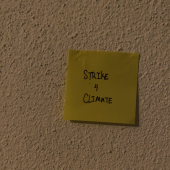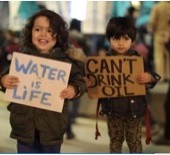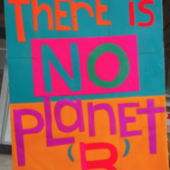
Abstract: This editorial discusses the intersection of environmental and racial justice and how the movement has failed to center voices most affected by climate change.
Continue Reading
For my culminating master’s project, I attempted to apply carefully selected theories and research to guide the production of a five-minute video trailer for a potential future documentary titled Children of Change. The video project endeavors to illustrate the myriad ways families and children in the United States are impacted by climate change, including proximity to the processes that contribute to climate change such as fossil fuel extraction, transport, and consumption; how the climate issue is inextricably tied to and will continue to exacerbate existing systems of oppression at home and around the world; and how our children’s health and future well-being are most at risk. Children of Change also documents how parents, youth, and families are engaged in the fight for their lives.
Video can be viewed at: https://vimeo.com/226170224

This article attempts to fill a gap in the sociological literature by detailing how I taught a sociology course ‘Society and Climate Change’. I discuss the theories I used to frame my course – Barry Commoner’s laws of nature (1976) and Patricia Hill Collin’s intersectionality (2009) – and then I present and analyze the pedagogical practices I used that attempted to put these two theories into practice by embodying connectedness through love, in order to create what David Korton refers to as an ‘earth community’ (2010).
Continue Reading